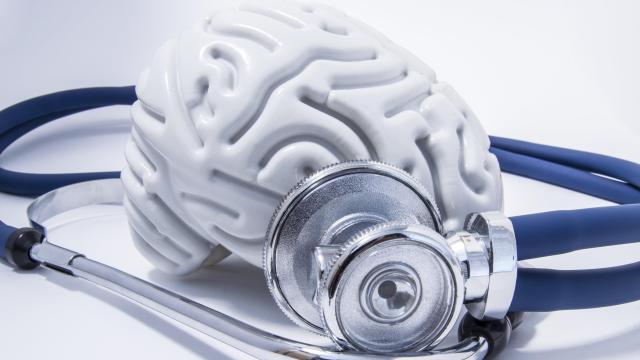Our brains are in rougher shape than we might think. New research from the World Health Organization and others estimates that nearly half of people globally are living with neurological conditions, such as Alzheimer’s disease, stroke, or epilepsy, just to name a few. Collectively, these neurological problems are now thought to be the single largest leading cause of disability and illness worldwide.
The findings are the latest to emerge from the Global Burden of Diseases study, a long-running research project that tries to track the prevalence of and harm caused by many health conditions and illnesses. The GBD project as a whole is managed by the Institute for Health Metrics and Evaluation (IHME) at the University of Washington, and this latest analysis included the collaboration of WHO scientists and many others. The health and mortality data used to create these reports are collected from governments, hospitals, and other sources all over the world, with the latest iteration up through 2021.
Past GBD studies have tried to calculate the toll of certain neurological complications. But according to the authors of this new paper, published this month in The Lancet Neurology, there hasn’t yet been a full accounting of all the illnesses tied to our brain and nervous system, such as neurodevelopmental disorders. For this study, scientists looked at 37 unique conditions in total, including migraines, seizures, various forms of dementia, and more.
As of 2021, the study authors found, about 3.4 billion people (43% of the world’s population) are living with at least one of these neurological conditions. Compared to other broad groups of illness, such as infectious diseases, these conditions are estimated to be the leading cause of ill health and disability. This burden isn’t felt equally, however, with about 80% of neurological deaths and illnesses experienced in low- to middle-income countries. Some of the top 10 major contributors to the loss of healthy years include stroke, neonatal encephalopathy, migraine, dementia, and diabetic neuropathy (nerve damage caused by advanced diabetes).
“Neurological conditions cause great suffering to the individuals and families they affect, and rob communities and economies of human capital,” said Tedros Adhanom Ghebreyesus, Director-General of the WHO, in a statement announcing the results. “This study should serve as an urgent call to action to scale up targeted interventions to allow the growing number of people living with neurological conditions to access the quality care, treatment and rehabilitation they need.”
Between 1990 and 2021, the study found, the rate of people living with or dying from neurological conditions has decreased, after adjusting for age—meaning that the chance of developing any one of these problems has shrunk over time. But since the global population has continued to grow, the absolute number of such cases has increased 18% since then. And while the neurological harm caused by some conditions like stroke, rabies, and meningitis has decreased, the harm from others has increased, with cases of diabetic neuropathy having tripled over the past 30 years.
Though there has been some success in reducing or preventing important risk factors tied to neurological illness since 1990, such as greater vaccination coverage for certain diseases like tetanus, the authors say more can and should be done. Actions like reducing air pollution or preventing high blood pressure could substantially reduce the burden of stroke, for instance, while further eliminating lead exposure would prevent many cases of intellectual disability.
“It is more important than ever to ensure brain health is better understood, valued and protected, from early childhood to later life,” Adhanom Ghebreyesus said.
